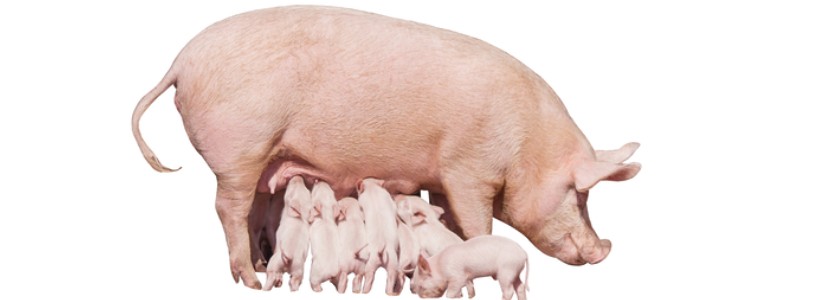 07 Jul 2022
07 Jul 2022
Lysolecithin dietary supplementation presents a promising alternative for improving the growth of litter piglets and maintain the body condition of sows.
Introduction
Over the years, sows have become more prolific, producing litters with greater weight and number of piglets and with higher daily gains and high energy consumption requirements in milk. Therefore, the modern, intensive pig industry requires high-performing sows that are also very demanding. Fast-growing litters impose an energy deficit on the sow, especially when entering a catabolic state towards the end of the gestation period and early lactation.
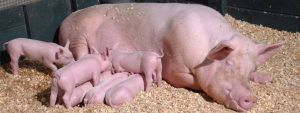
Sows are usually fed a restricted diet shortly before, and for the first days after farrowing in order to prevent decreased lactation feed intake or postpartum dysgalactia syndrome. As a result, increasing nutrient and energy retention from feed is crucial to maintaining yield while maintaining reasonable feed costs.

Animal fat supplementation
The addition of animal fats, such as tallow or lard, can help nutritionists achieve these aims. However, despite their high energy density animal fats can have highly variable composition and quality. As well as being associated with incomplete absorption, as they mainly contain saturated, long-chain fatty acids (FAs). These types of saturated long-chain fatty acids (LCFAs) are known to be less readily incorporated in the micelles of the intestinal lumen. This in turn makes limits their exposure to pancreatic lipases.
Lysolecithin supplementation
Supplementation with digestive enzymes and emulsifiers in sow food has also been used to aid digestion, absorption, and retention of fats and other nutrients. Lysolecithin is one of the most studied emulsifying agents and its use can improve energy digestibility and retention and help sows maintain condition and performance during lactation.
It is usually produced through soybean oil processing, and commercially available LLs contain diverse mixtures of phospholipids (PLs), lysophospholipids (LPLs), triglycerides (TGs) and other compounds. It has been reported that the emulsifying properties of LL vary depending on its source and dietary fat composition. The latter mostly depending on the ratio of saturated vs. unsaturated FAs. However, its wider effects in animal husbandry are still a matter of discussion. Meanwhile LL also has the capacity to interact with the structure and function of biological membranes, resulting in enhanced nutrient absorption by intestinal epithelial cells.
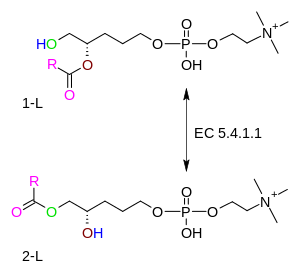
Sows’ performance and metabolic balance during their transition from gestation to lactation and the potential positive effects of LL supplementation has been a topic of previous research in different studies. Zhao et al. studied the effect of LL addition (beginning on gestation day 110) to a low-animal fat or a high-animal fat diet given to gestating/lactating sows on their performance, litter weight gain, milk composition and total tract digestibility of energy and nutrients. Other researchers also evaluated the respective impact on milk/colostrum immunoglobulin concentrations and on selected blood parameters. For most of these previous studies, diets did not contain animal fat, and sows were allowed ad libitum feed consumption during the entire lactation period.
It is hypothesized that dietary supplementation of lysolecithin during the demanding period of the last part of gestation and throughout lactation in sows could influence their metabolism and performance by improving digestibility and absorption of fat and other nutrients.
Objective
The present study was carried out with the purpose of evaluating the effects of lysolecithin supplementation on the diet of sows during the last three weeks of gestation and throughout lactation on performance and metabolic parameters.
Materials and Methods
The animal experiment was performed in a commercial farrow-to-finish operating pig farm, with a capacity of 740 sows, located within the Pieria Regional Unit (Kontariotisa area), Region of Central Macedonia, Greece. In total,sixty (n = 60) multiparous Topigs sows were used for the study.
On gestation day 90, sows were randomly allocated into two equally sized groups, which were managed under the same feeding regime.
Piglet performance parameters, measured on farrowing day and at weaning comprised:
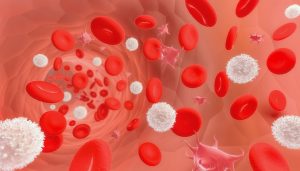
Blood sampling
Blood samples were collected from sows on gestation day 108 and on lactation day 14.
Results and discussion
Conclusion
Based on the obtained results, researchers concluded that lysolecithin supplementation in sows does improve litter weight at weaning without excessive catabolism of dorsal fat. This is most likely due to a more efficient use of nutrients. Such results follow similar trends to those observed in previous studies. Therefore, LL can be considered an alternative for diet supplementation in sows during highly demanding physiological periods like the end of gestation and lactation.
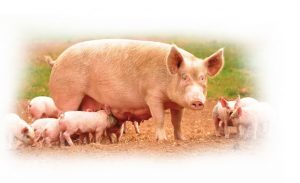
Subscribe now to the technical magazine of animal nutrition
AUTHORS

Nutritional Interventions to Improve Fertility in Male Broiler Breeders
Edgar Oviedo
The Use of Organic Acids in Poultry: A Natural Path to Health and Productivity
M. Naeem
Synergistic Benefits of Prebiotics and Probiotics in Poultry, Swine, and Cattle
Gustavo Adolfo Quintana-Ospina
Hybrid Rye Potential in Laying Hen Feed Rations
Gwendolyn Jones
A day in the life of phosphorus in pigs: Part I
Rafael Duran Giménez-Rico
Use of enzymes in diets for ruminants
Braulio de la Calle Campos
Minerals and Hoof Health in the Pregnant Sow
Juan Gabriel Espino
Impact of Oxidized Fats on Swine Reproduction and Offspring
Maria Alejandra Perez Alvarado